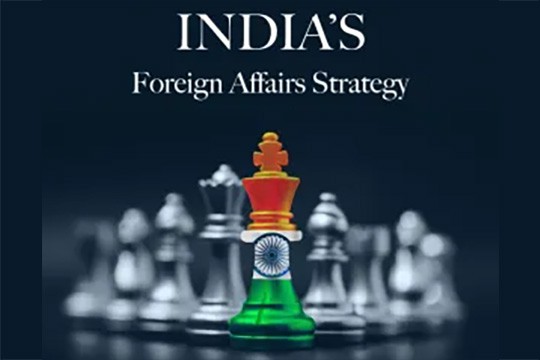As a bridge between the democratic and the “autocratic” world we actually bring special value to the SCO at one level, and at another, we are a voice of moderation in the organisation and exercise a restraining influence on it becoming overtly anti-western in its agenda, writes Kanwal Sibal, a former foreign secretary and was also ambassador of India to Russia.
India is playing on various international chess boards, which raises the question in some quarters about how India intends to continue balancing its external relations amidst rising discords between major powers, the geopolitical flux that is taking place, the efforts afoot to bring about a re-distribution of power within the global system hitherto dominated by the West, and this at a time when India, still committed to building a more multipolar world, is strengthening its own ties with the western world.
India has many strategic interests in the SCO geography: India is a major Asian country, comparable to China in many dimensions and must be involved in Eurasian geopolitics; it has historical connections and affinities with Central Asian countries, with our leaders maintaining close contacts with them since their independence; India’s economic rise gives us more means to contribute to the economic growth of these countries, makes us more attractive as an economic partner as they seek also to balance their external ties and reduce over-dependence on any particular country.
Within the SCO framework, India can better evaluate China’s Belt and Road Initiative in this region. The envisaged FTA between India and Eurasian Economic Union that Russia supports can be facilitated by our engagement with the SCO. India is pursuing regional connectivity projects linking it with landlocked Central Asia. Most importantly, terrorism, religious extremism and separatism that threaten this region are shared concerns.
India has vital security stakes in Afghanistan and needs to consult regularly with SCO members about the evolution of the situation there, now that the Taliban are once again in power. The National Security Advisers of the SCO countries are focused on this.
The footprint of the SCO is becoming bigger, which, again, increases its importance to us. It is becoming, along with BRICS, a building block for a multipolar global system with more countries seeking links with it. Iran’s acceptance as a permanent member is a significant geopolitical step, given the unresolved nuclear issue and UN sanctions on the country approved by both Russia and China.
SCO’s areas of cooperation cover a vast canvas: trade and economy, science and technology, energy, transportation, culture, education, health care, agriculture, environmental protection, terrorism, religious extremism, separatism and the like. Its stated goal is strengthening mutual confidence and good-neighbourly relations among the member countries; maintaining and ensuring peace, security and stability in the region and moving towards the establishment of a new, democratic, just and rational political and economic international order.
Principles of mutual trust, mutual benefit, equal rights, consultations, respect for the diversity of cultures and aspiration towards common development are to guide its functioning. The SCO also seeks to combat international drug trafficking as a source of financing global terrorism, with a focus on Afghanistan in particular.
Our relations with the West have greatly expanded, especially with the US, which is now our biggest trade partner in goods and services, with a developing partnership in the area of critical and emerging technologies and strong bonds in the defence domain covering arms purchases, foundational agreements, military exercises. We are sharing multipurpose platforms such as QUAD, I2U2. Our commitment to the Indo-Pacific concept has become more robust. We participate regularly in G 7 summits as an invitee. India is negotiating FTAs with the EU, UK and Canada and has already finalised one with Australia. Our expanding relations with Japan are an important feature of our “west-oriented” foreign policy.
India, nevertheless, is committed to a multipolar world to achieve our aspiration to play our due role in international affairs. This pre-supposes a reform of global political and financial institutions, including an expansion of the UN Security Council.
Our SCO and BRICS membership gives us more geopolitical space to pursue this objective. As a bridge between the democratic and the “autocratic” world we actually bring special value to the SCO at one level, and at another, we are a voice of moderation in the organisation and exercise a restraining influence on it becoming overtly anti-western in its agenda.
Our strengthening ties with the West are not intended to perpetuate its hegemony, which is why we are partnering with other power centers to maintain a global balance of power congenial to our interests, stresses Kanval Sibal.
read more in our Telegram-channel https://t.me/The_International_Affairs

 11:35 16.05.2023 •
11:35 16.05.2023 •























